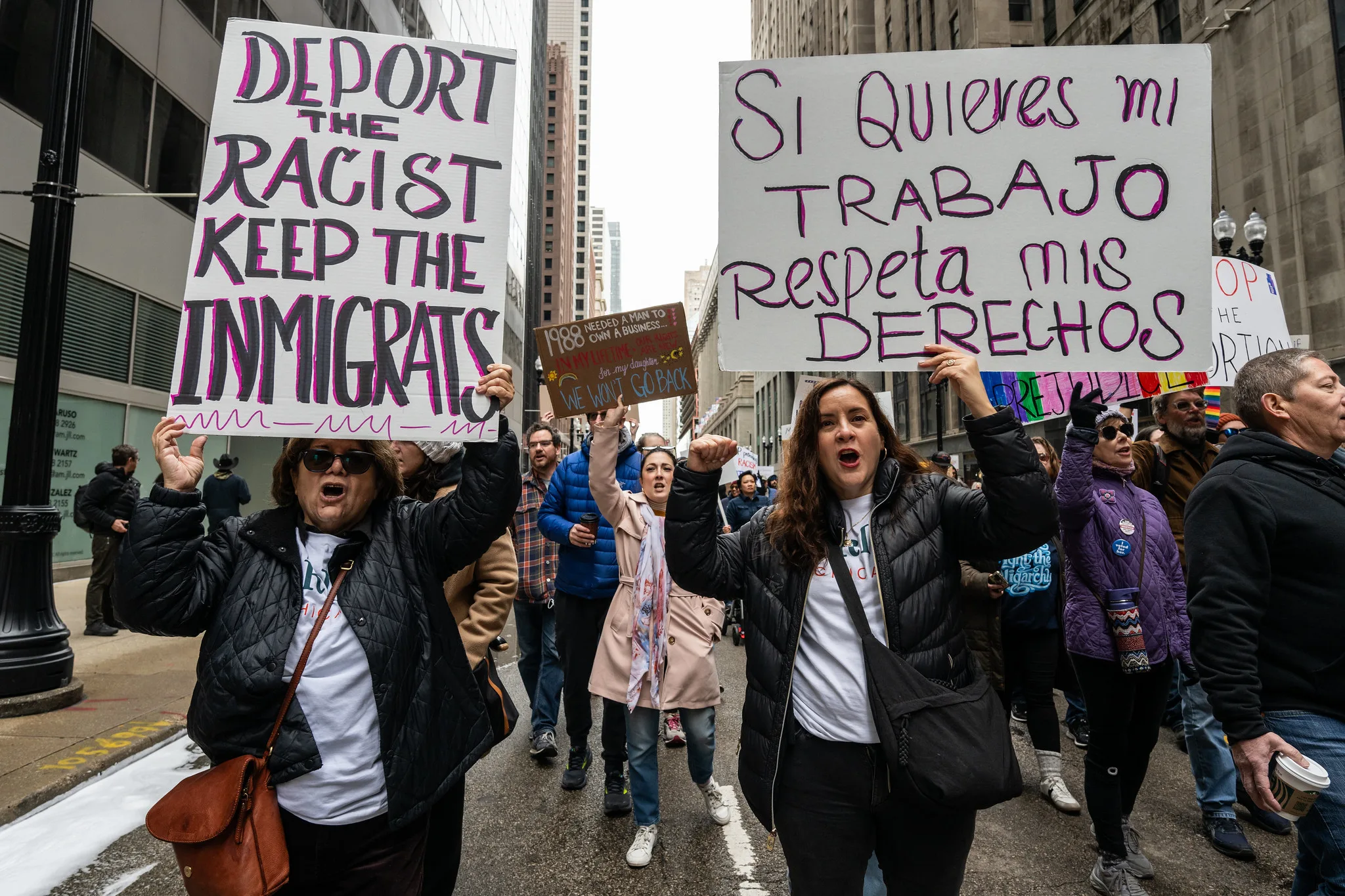With Governor Kathy Hochul’s controversial overhaul of the Consumer-Directed Personal Assistance Program that took effect this week, former home care workers and lawmakers are calling on her to cancel the contract with the Chinese-American Planning Council over allegations of wage theft.
Established in 1995, the Consumer-Directed Personal Assistance Program (CDPAP) allows disabled individuals on Medicaid to personally choose their own home caregiver, such as a family member. The state pays the family member through Medicaid. CDPAP currently provides home care to 280,000 New Yorkers and employs as many as 400,000 workers.
However, workers organizing with the Chinese Staff and Workers’ Association as part of their Ain’t I a Woman?! campaign has accused the Chinese-American Planning Council (CPC), CDPAP’s main New York City area subcontractor, of withholding $90 million in wages from immigrant health care workers, a majority of whom are women. They allege that CPC only paid home care workers for 13-hour shifts while workers actually worked 24-hour shifts. Because of this, they should not be awarded the contract.
“CPC broke NY state law, knowing that workers could not sleep, and it should pay back $90 million in stolen wages now,” said Kathy Lu, organizer with Ain’t I a Woman?! in a statement.
Alice Du, director of communications for CPC, said that the agency currently maintains a 100% compliance rating from audits conducted by the New York State Office of the Medicaid Inspector General and the New York City Human Resources Administration.
“CPC and CPCHAP fully support home care workers in their call to end 24-hour shifts and implement universal 12-hour split shifts,” she told Documented in a statement. “Unfortunately, 24-hour shifts are mandated by state law and determined by insurance companies. Home care agencies do not have the authority to split shifts unless authorized by HRA and managed care organizations.”
Data shows that wage theft in home care is common. The industry had the most wage theft violations in 2024 of every other industry in the city, according to New York City Comptroller Brad Lander’s office.
Also Read: “Scared and terrified:” Healthcare Professionals Ease Fears of Undocumented Caribbean Immigrants
Cailan Feng, 69, was a home care attendant for CPC for eight years. For the last three years that she worked for them, between 2016 and 2018, Feng said she worked 24-hour shifts without additional compensation.
“This is a trampling on our care workers,” Feng said in a statement shared with Documented. “Governor Hochul, do you want to tell the world that women of color should work 24 hours a day? We demand: Enforce the law immediately. Stop corruption. Return my hard-earned money.”
CPC did not respond to a request for comment about Feng’s case.
New York Assemblymember Ron Kim, a vocal critic of CPC, has accused the agency of violating NY Public Health Law 3614-C(5), which bars payments by government agencies to certified home health agencies that have stolen wages from workers.
“We believe they are not compliant with the state’s home care wage parity law, and their current Medicaid home care contract should be revoked, and yes, they should not be eligible for CDPAP,” Kim told Documented.
In 2012, the state privatized CDPAP, resulting in the proliferation of about 600 middleman home care agencies sprouting up across the state. The state paid those agencies directly, who then administered the funds to the workers after taking a fee.
Over the past five years, CDPAP’s budget grew from $2.5 billion in 2019 to over $9 billion in 2024. Accusations of widespread fraud plagued the program, which spurred calls for reform. Then in 2024, Hochul announced that CDPAP would be significantly restructured.
Beginning on April 1, 2025, the state began transitioning the program away from using middlemen home care agencies to a single statewide fiscal intermediary, Public Partnerships LLC. On Tuesday, a federal judge temporarily delayed the CDPAP reform for some agencies that have yet to transition until Friday.
Also Read: Home Health Care Workers Can Sue Their Bosses, Court Says
According to Sam Spokony, a spokesperson for Gov. Hochul, CPC was selected by Public Partnerships LLC as a subcontractor. CPC also underwent a thorough review by the state’s Department of Health.
“By shifting to a single statewide fiscal intermediary and cutting out hundreds of administrative middlemen, New York State’s CDPAP reforms will protect home care for consumers who rely on CDPAP, while also protecting all New York taxpayers by putting an end to hundreds of millions of dollars of runaway administrative costs,” said Spokony.
Additionally, the state approved four core regional home care partners as subcontractors. CPC’s subsidiary, CPC Home Attendant Program Inc., was awarded the contract for New York City, Long Island, and Westchester County.
Several cases of wage theft at CPC have been documented by the New York Department of Labor. In 2015, the agency found that CPC owed $2,720 to two workers. In 2016, the DOL found that they owed $424 to another worker.
CPC did not respond to a request for comment about these cases of wage theft or about Kim’s allegations of violating the NY Public Health Law.
Home care workers have been fighting a years-long battle to abolish 24-hour work shifts in New York City, splitting them into two distinct 12-hour shifts as well as preventing employers from assigning home care workers over 50 hours per week.
The state’s “13-Hour Rule” allows workers to be paid for just 13 hours of a 24-hour shift only if they receive a sleep break of at least eight hours and receive five hours of uninterrupted sleep as well as three hours of meal break time.
In 2019, the New York Court of Appeals ruled that if workers do not get required sleep and meal breaks, employers must pay workers for each hour of a 24-hour shift they worked.
Workers claim that CPC violated the “13-Hour Rule,” as they had to work 24-hour shifts without sleep, and CPC paid them just 13 hours.
Assemblymember Kim, Chair of the Assembly Committee on Aging, said CPC is an outlier among home care agencies in failing to pay 24-hour shifts.
“Most are compliant by either raising the money to pay for overtime or splitting shifts,” he said. “Most accept and understand the court ruling.”
In response to Kim, Du said that wasn’t their experience.
“Assembly Member Ron Kim previously said that dozens of New York City home care agencies have converted 24-hour shifts to 12-hour split shifts on their own. In our own meetings with many home care agencies, none have reported being able to convert their 24-hour shifts to split shifts without using the traditional state approval route,” Du said.
Approximately 100 workers who filed wage theft claims against CPC with the DOL had their cases dropped. Although the DOL argued that they dropped the cases because the workers’ grievances were being arbitrated by their union, 1199-SEIU, in 2024, the New York State Supreme Court ruled that the DOL illegally closed those cases and ordered the DOL to reopen them.
“We acknowledge 1199-SEIU’s grievance process to address any worker concerns, including the arbitrator’s decision in February 2022 to establish a Special Wage Fund of nearly $40 million from all 42 union agencies, including CPCHAP [CPC Home Attendant Program] to resolve wage and hour claims without finding specific fault on the part of any particular agency, which we accept and which courts have upheld,” Du said.
On Dec. 4, 2024, 33 state lawmakers penned an open letter demanding that the DOL abide by the court order and reopen the cases against CPC.
Hui Ling Chen, 72, worked for CPC from 2009 to 2021 and alleges that the company stole $450,000 in wages from her. Ling was one of the named plaintiffs in a lawsuit filed against CPC in 2015.
“I worked sixteen years of 24-hour workdays at CPC, three to four days a week,” she told Documented in a statement. “Like many home attendant sisters, my patient was severely ill and bedbound, so I needed to lift her heavy body all day and night. We need to provide care and monitor the patient around the clock. Every night, I couldn’t sleep for even two hours. I couldn’t eat well. I couldn’t go to the doctor.”
Now retired, she still struggles with the toll the 24-hour shifts have taken on her body.
“I’ve been retired for three years, but my hands and legs are still numb,” she said. “I’m in tremendous pain every day, all over my body.














